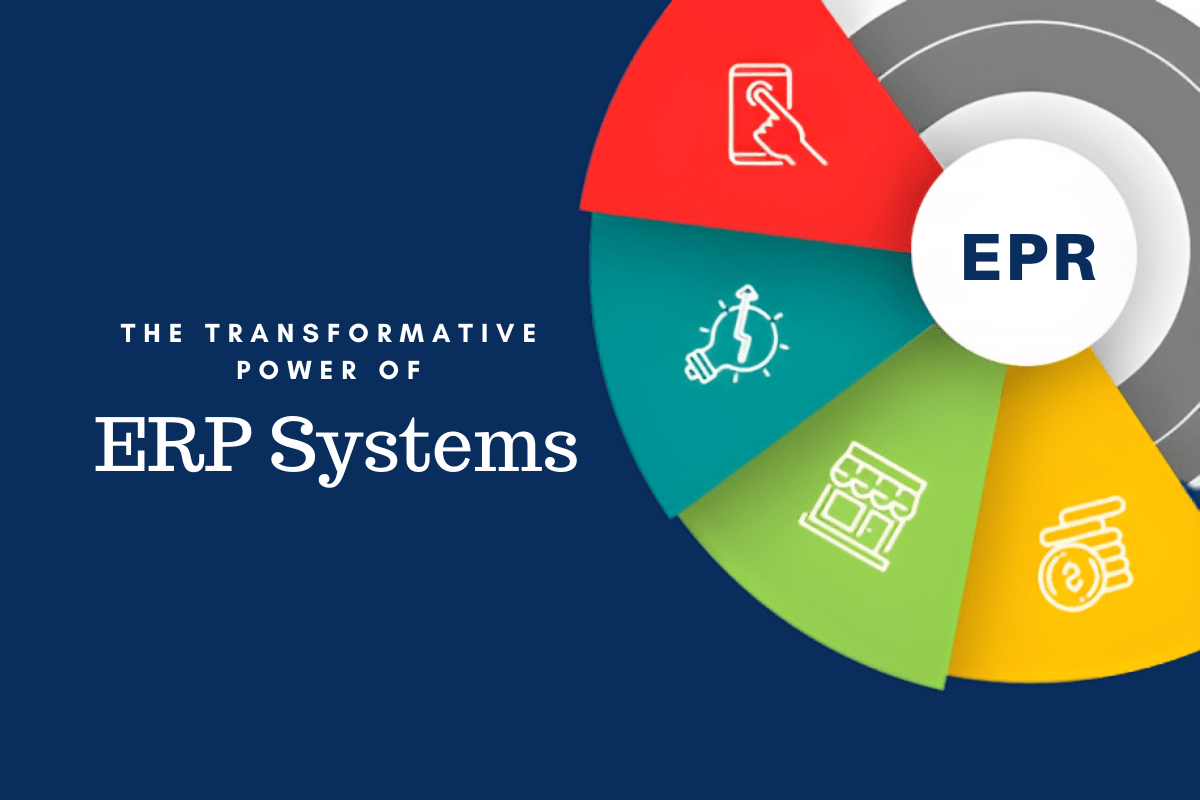ERP systems have revolutionized businesses’ operations, offering many benefits that can transform organizational processes and drive growth. This article will explore how ERP systems can significantly enhance business operations, providing streamlined processes, improved collaboration, and increased efficiency. Whether you are a small startup or a large enterprise, implementing an ERP system can profoundly impact your business’s success.
Introduction
Organizations must optimize their operations to stay competitive in today’s fast-paced business landscape. Enterprise Resource Planning (ERP) (Link) systems are crucial in achieving this goal. An ERP system integrates various organizational functions and departments, providing a centralized platform for managing and controlling different aspects of the business.
With an ERP system, businesses can streamline processes, eliminate redundant tasks, and gain actionable insights through data analysis. Let’s delve deeper into the transformative power of ERP systems and how they can revolutionize your business operations.
Also Read: 5 Life-Enhancing Benefits of Smart Watches
Benefits of ERP Systems
Streamlined Processes
One of the key advantages of implementing an ERP system is the ability to streamline business processes. Employees can focus on more value-added activities by automating repetitive tasks and eliminating manual data entry. ERP systems provide a comprehensive view of business operations, enabling efficient decision-making and resource allocation.
Increased Efficiency and Productivity
ERP systems optimize workflows and enhance operational efficiency. By standardizing processes across departments, organizations can achieve higher levels of productivity. ERP solutions automate inventory management, order processing, and financial reporting tasks, reducing the time and effort required.
Improved Data Accuracy and Accessibility
Data integrity is crucial for informed decision-making. ERP systems centralize data from various departments into a single database, ensuring data accuracy and consistency. This centralized approach eliminates data silos and enables real-time access to relevant information, empowering employees to make data-driven decisions.
Integration and Data Centralization
ERP systems excel in integrating different business functions and centralizing data. This integration eliminates data duplication and facilitates seamless information sharing across departments. Real-time reporting and analytics capabilities provide stakeholders with actionable insights, enabling timely decision-making.
Automation and Workflow Optimization
ERP systems automate routine tasks, minimizing human error and increasing operational efficiency. Businesses can reduce processing time and improve customer satisfaction by automating order fulfillment, inventory management, and invoice generation processes. Standardized workflows ensure consistency and enable organizations to scale their operations effectively.
Enhanced Collaboration and Communication
Collaboration and communication are vital for business success. ERP systems foster cross-departmental coordination by providing a unified platform for sharing information and collaborating on projects. With shared calendars, task management, and document sharing, employees can work together seamlessly, leading to better outcomes and improved customer service.
Scalability and Flexibility
As firms grow and evolve, their functional needs vary. Enterprise resource planning systems offer scalability and flexibility to adapt to these changing requirements. Whether adding new modules, integrating with external systems, or customizing workflows, ERP solutions can be tailored to suit an organization’s unique needs. This flexibility ensures that businesses can scale their operations without disruption.
Cost Savings and Return on Investment
Organizations can achieve operational efficiencies and cut costs by streamlining processes, reducing manual labor, and optimizing resource utilization. ERP systems provide insights into key performance indicators, enabling informed decision-making that maximizes profitability. The return on investment (ROI) for ERP implementations can be substantial, considering their long-term benefits.
Security and Data Protection
Data security is a foremost priority for firms in the digital age. ERP systems employ robust security measures to protect sensitive information. Features like data encryption, access control, and role-based permissions ensure that only authorized individuals can access critical data. Regular backups and disaster recovery mechanisms safeguard against data loss and ensure business continuity.
Challenges of Implementing ERP Systems
While ERP systems bring numerous benefits, their implementation can be challenging. Change management is a crucial aspect that organizations need to address. Employees may refrain from adopting new processes and systems, requiring comprehensive training and support. Integrating an ERP system with existing systems and processes also poses challenges that must be overcome.
Best Practices for Successful ERP Implementation
To provide a flourishing ERP enactment, institutions should follow the best methods. Comprehensive planning and strategy development is essential to align the Enterprise resource planning system with business goals. Engaging stakeholders and creating a change management culture helps employees embrace the new system. Continuous evaluation and improvement enable organizations to optimize their Enterprise resource planning system over time.
Real-world Examples of ERP Success
Numerous organizations have experienced transformative results after implementing Enterprise resource planning systems. Company X, a manufacturing firm, achieved significant efficiency improvements by centralizing their production planning, inventory management, and distribution processes. This integration reduced lead times, optimized resource allocation, and improved customer satisfaction.
Company Y, a retail business, realized substantial cost savings through an Enterprise resource planning implementation. By automating their supply chain processes, they reduced inventory carrying costs, eliminated stockouts, and streamlined their order fulfillment process. These improvements led to better customer service and increased profitability.
Future Trends in ERP Systems
ERP systems continue to evolve to meet the ever-changing demands of businesses. Because of its flexibility, scalability, and affordability, cloud-based Enterprise resource planning solutions are preferred. Integrating emerging technologies such as artificial intelligence and machine learning enables advanced data analysis and forecasting capabilities. Additionally, integrating Enterprise resource planning systems with the Internet of Things (IoT) allows real-time monitoring and control of physical assets.
Conclusion
In conclusion, ERP systems have the power to transform business operations by streamlining processes, increasing efficiency, and enhancing collaboration. Organizations can make informed decisions and stay ahead of the competition by centralizing data, automating workflows, and providing real-time insights. However, successful implementation requires careful planning, stakeholder engagement, and continuous improvement. Enterprise resource planning systems offer a scalable and flexible solution for businesses looking to optimize their operations and achieve long-term growth.
FAQs
Q1. What is an ERP system?
An ERP system is a software solution that integrates various business functions and departments into a centralized platform, streamlining processes and improving operational efficiency.
Q2. How can ERP systems benefit my business?
ERP systems offer streamlined processes, increased efficiency, improved data accuracy, enhanced collaboration, scalability, cost savings, and data security.
Q3. What are the challenges of implementing an ERP system?
Challenges of Enterprise resource planning implementation include change management, user adoption, and integration with existing systems and processes.
Q4. How can I ensure a successful ERP implementation?
Best practices for successful Enterprise resource planning implementation include comprehensive planning, stakeholder engagement, continuous evaluation, and change management.
Q5. What are some future trends in ERP systems?
Future trends in Enterprise resource planning systems include The adoption of cloud-based solutions, Integration with AI and machine learning, and Leveraging the IoT for real-time monitoring and control.

